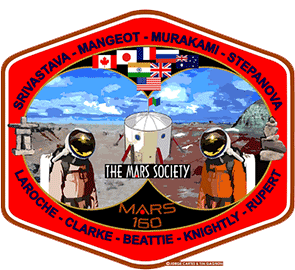Sol Journal – November 25th
Lost in translation of Yusuke’s world
Cheeky smile and kind eyes, this is our Executive Officer from Japan. Yusuke Murakami was born in Kita-Kyushu, east of Japan and grew up in Yokohama. His childhood hero was Arsene Lupin from the book “A mysterious thief”. It is the story about very smart, creative thief, that was stealing goodies from bad guys and giving it to poor people. Yusuke liked him also for his appreciation of the beauty of art. Lupin was stealing the paintings from rich men in order to show them to the world.
Yusuke’s way of looking at life is very complicated, unique and surprising. If he had the time machine, he would live in the era of Stone Age. Because back then they were “real” humans, who created and invented things to survive and enjoy life. Yusuke loves tools and the process of making them. As he says, house or space station is the biggest tool for humans. From a kid, who was making knives out of stones, he grew up to a man with Master’s degree in architecture. There is a moment of chance that can change whole life and this happened to Yusuke. He always was thinking how to stay creative in the extreme situations and after reading about the Biosphere 2 project, Yusuke searched on the internet the similar projects where he could participate. And found the Japanese Antarctica Expedition. In order to investigate the human creativity in extreme environment, he dropped off from a PhD course and went to an Antarctic station. The team of 28 people spend 15 months in Antarctic Japanese Syowa station working on science and engineering projects. Yusuke was assigned as crew geo physicist after successfully passing the cross training course. This difficult and extraordinary experience has taught him that the consistency in long term missions is very important, because it gives the base for health and safety of the crew. It also creates traditions inside the crew. Traditions that bring a moments of joy. The second lesson he learned that the time for each crew member is subjective, living at the same moment but thinking on the different time scale. Even though we act individually but we have to think of our actions as a whole humanity. The third lesson is simple – good food, good laugh, good sleep! These will keep you being a “real” human and stop from becoming a robot. Since then his involvement into space field grew more and more and changed his life. Yusuke started to dream of creating space architecture. Space architecture has many similarities with his favorite time of human existence. People in Stone Age also had limited resources, plenty of creativity and risks.
How did he get into Mars 160 mission? Yusuke read the book about Japanese writer’s experience living at Mars Desert Research Station. But only after 6 years he had the chance to apply for Mars Arctic 365 mission. Mars Analogue stations are in between our existence on Earth and future life on Mars. This fascination kept him going to the finals and brought him to Mars 160 crew.
Our Executive Officer is full of surprises, which we encounter almost every day. Just imagine, a skillful architecture, who brought more gadgets to the station then we are all in total, dreams to live in the era of Stone Age and always worries of losing his human side to a trade of becoming a robot. It took me two hours to interview Yusuke Murakami and yet he is a mystery mind.
“Life doesn’t need an explanation” – Yusuke Murakami



